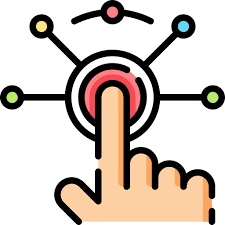In the realm of financial innovation, Sweden has long stood at the forefront, embracing advancements that redefine the traditional monetary system. As the world gradually shifts towards digitalization, the concept of a digital currency has emerged as a pivotal development.
This transition is not just a mere trend but carries significant implications for the future of financial transactions globally. Sweden’s central bank, the Riksbank, has been proactive in exploring this frontier with the introduction of the e-krona project, aiming to create a digital complement to cash. For those interested in the intersection of technology and finance, understanding the nuances of crypto and digital currencies is essential.
The Riksbank’s Digital Ambition
The Riksbank’s journey into digital currency began in 2017, spurred by a vision to modernize the Swedish monetary system. The introduction of the e-krona is not intended to replace physical cash but to function alongside it, ensuring that the public has access to state-issued money even as the use of cash declines. The potential benefits of a central bank digital currency (CBDC) are manifold, ranging from enhanced payment market alternatives to increased financial inclusion.
The Riksbank’s motivation is not just about keeping pace with technology but also about ensuring the uniform value of the krona across different banks and strengthening the resilience of the payment market. The e-krona could serve as a reliable fallback during disruptions to private payment systems and potentially even operate offline, addressing concerns about digital accessibility and continuity.
Navigating the Pilot Project Maze
The Riksbank’s partnership with Accenture marked a significant milestone in the e-krona narrative, launching a pilot project to navigate the uncharted waters of digital currency implementation. This initiative underwent several phases, starting in 2021, with each stage meticulously testing and refining the technical platform for the e-krona.
The findings from these tests have been illuminating, revealing both the potential and the challenges of bringing a digital currency to life. The pilot project concluded in 2023, marking a pivotal moment in the Riksbank’s digital currency exploration. The results of the project have been documented in a series of reports, offering a detailed analysis of the e-krona’s feasibility and performance.
The Technical and Legislative Landscape
The technical underpinnings of the e-krona are as complex as they are critical. The Riksbank has explored various technical solutions, each with its own set of advantages and challenges. The goal is to create a robust and secure platform that can handle the demands of a nation’s monetary transactions while being user-friendly and accessible to all citizens.
Legislation, too, plays a crucial role in the realization of the e-krona. The Riksbank has recommended legislative preparations to ensure that, should a political decision be made to issue the e-krona, the implementation can proceed without delay. This foresight underscores the importance of readiness in an ever-evolving financial landscape.
Public Reception and Economic Implications
How has the Swedish public received the idea of the e-krona? The response has been cautiously optimistic, with many recognizing the potential for the e-krona to innovate payment services and enhance the financial system’s digitalisation. The impact on the Swedish payment market could be significant, offering a state-backed alternative to private payment solutions and potentially leveling the playing field.
The e-krona also carries the promise of greater financial inclusion, providing access to digital payment services to those who may be underserved by traditional banking institutions. This inclusivity could foster a more resilient economic environment, one where every individual has the means to participate fully in the digital economy.
Forecasting the e-krona’s Horizon
What does the future hold for the e-krona? While the Riksbank’s pilot project has laid the groundwork, the decision to issue the e-krona ultimately rests with political forces. The current sentiment suggests that there may not be an immediate societal need for the digital currency, but the Riksbank’s recommendation to prepare legislation indicates a belief in the e-krona’s potential.
It is a question of when, not if, the political, societal, and technological stars will align to bring the e-krona into existence. As Sweden continues to navigate the complexities of introducing a CBDC, the global community watches with interest, recognizing the e-krona’s potential to redefine the monetary system’s unity and the state’s role in payments.
Peering into the future, the e-krona stands as a testament to Sweden’s commitment to innovation and financial evolution. It is a narrative of progress, one that could shape the very fabric of how we transact and interact with money in a digital age. As the Riksbank continues to chart this course, the world awaits the next chapter in Sweden’s digital currency saga, ready to witness the transformation of an idea into reality.

